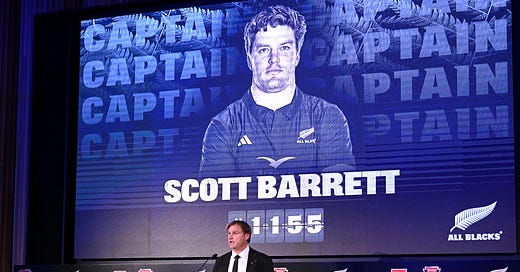Monday mash-up: The low-carb Razor era begins
Team naming was splashy, and a little too gassy.
As a live event, tonight’s All Blacks team naming was… quirky?
I mean, “squad for the Steinlager Ultra Low Carb Series” doesn’t exactly roll off the tongue, does it. It doesn’t scream gravitas. It just sounds a bit gassy.
From there, Dame Patsy Reddy’s night didn’t really improve.
Asafo Aumua, by dint of the alphabet, was the first name out of…
Keep reading with a 7-day free trial
Subscribe to The Bounce to keep reading this post and get 7 days of free access to the full post archives.




